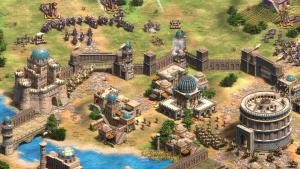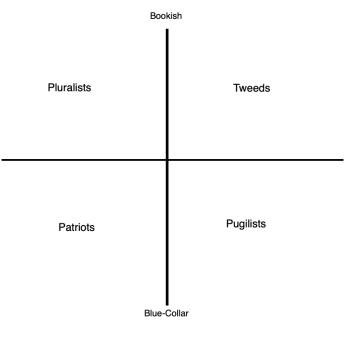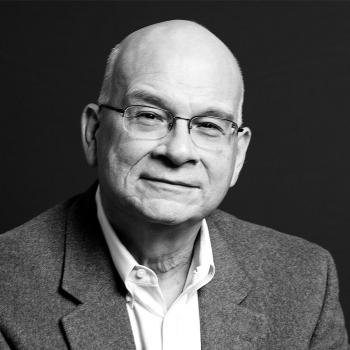
A couple of weeks ago, Nathan J. Robinson—whom I consistently find to be one of the most interesting writers around, even though I frequently disagree with him—penned a provocative meditation on a subject that’s near and dear to my heart: the beloved real-time strategy game Age of Empires.
For those unfamiliar, Age of Empires is a late-1990s computer game that operates rather like an elaborate form of chess. Players control a small village of medieval townsfolk, who farm and fish and harvest resources in order to build a larger and stronger civilization. Eventually, these civilizations develop military technologies and take to the battlefield, culminating in clashes featuring hundreds of elephants, cannons, camels, and cavalry archers. It’s all very fast-paced and enjoyable (and I learned more world history than I care to admit from it).
But, Robinson confesses, eventually the shine wears off and things become dissatisfying. As he puts it, “Every game of Age of Empires is astonishingly different but also drearily the same: build an army, tear across the land, slaughter the enemy, declare victory. If you do, congratulations, you’re the No. 1 empire. A trumpet sounds to celebrate you.” And might this response be attributable in part to the hollowness of the world each match depicts, polis upon polis committed merely to the advancement of domination and destruction? “Objectively examined, the empires in Age of Empires are bleak places indeed. They have no culture, no values. They are worthless societies, dedicated only to work and war,” Robinson writes.
Robinson goes on to build this indictment into a critique of “the competitive urge” more broadly—that is, the inchoate impulse to simply be better than somebody else. This tendency, in Robinson’s words, is what creates a culture devoted to “logistics devoid of values,” and the associated pathologies of the neoliberal age.
At the risk of being pedantic, I have to point out that military domination is not, in fact, the only way to win at Age of Empires. One can win by constructing a mighty Wonder—such as the Hagia Sophia or the temple at Angkor Wat—and defending it for a specified time against those who would destroy it. Alternatively, one can win by locating and securing all the Relics on a given map, perhaps a nod to the “soft power” of religious conversion.
But Robinson is right that even so, all of this plays out against a fundamentally competitive backdrop. And Robinson has a point about the sterility of even fictional societies that seem solely built for war: I recall having a similar response to the 2017 action game For Honor, a fighting game of knights and Vikings and samurai that I chiefly remember for its remarkable commitment to gender parity on the battlefield. For Honor manages to depict a world without artists or priests or parents or children: merely strong young men and women devoted above all else to conquest. And it does indeed leave the player with an uncomfortable feeling.
Yet I wonder if, perhaps, the picture is more complicated than Robinson allows.
In the course of a round of Age of Empires, the player’s civilization rapidly progresses through four “Ages”—the Dark Age, the Feudal Age, the Castle Age, and the Imperial Age. At every juncture, the architecture of the player’s existing buildings advances—transitioning over time from a rough-hewn wood stockade to one of finely mortared stonework. Properly speaking there’s no competitive need for these advancements—in theory, a society could focus solely on maximizing its death-dealing capacities, as For Honor manages to depict—but they occur nevertheless. In the midst of competition, the world of experience is simultaneously beautified: skilled human creativity flourishes, even if these advancements occur outside the player’s direct control.
To my mind, this reflects the fact that there is a very real sense in which “iron sharpens iron”—in which human beings can genuinely flourish, living more fully into the capacities granted by their Creator, under “competitive” conditions. Perhaps “competitive” is the wrong word; maybe “comparative” or “evaluative” is better in that those words lack any connotation of libido dominandi, lust for power. The simple fact of being measured against another, held to a standard that exceeds what one believes himself capable of, is a powerful crucible for the development of one’s capacities.
I fully agree with Robinson on one thing: I certainly am not committed to the view that all of economic life, from birth till death, should be conceived of as a brutal jockeying for one’s place in the meritocracy. But I can’t deny that over the years, I’ve tended to do my best work under conditions of comparison and testing. When I joined a group chat of my friends offering a prize to the person who read the most books that year, I read a lot more books (and played far fewer video games). When I came across a law student writing competition offering cash prizes to the winners, I buckled down and wrote an essay on a subject I might never have otherwise touched. And so on it has gone. But crucially, there is nothing about these forms of “competition” per se that is completely zero-sum: win or lose, I’ve benefited from the fact of trying.
In the end, it seems to me that there’s an analogy between this way of thinking about competition and the logic of virtue ethics: just as one grows in virtue by exercising practical reason over the course of one’s life, one develops one’s creaturely capacities by pursuing more and different challenges. One tests oneself not for the purpose of destroying the Other, but for understanding who exactly one was created to be. And maybe Age of Empires doesn’t quite go that far, but it at least points in that direction.












